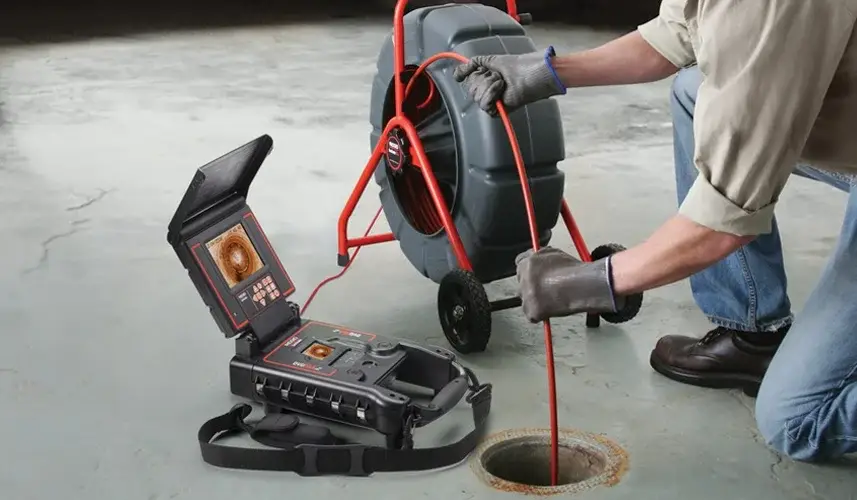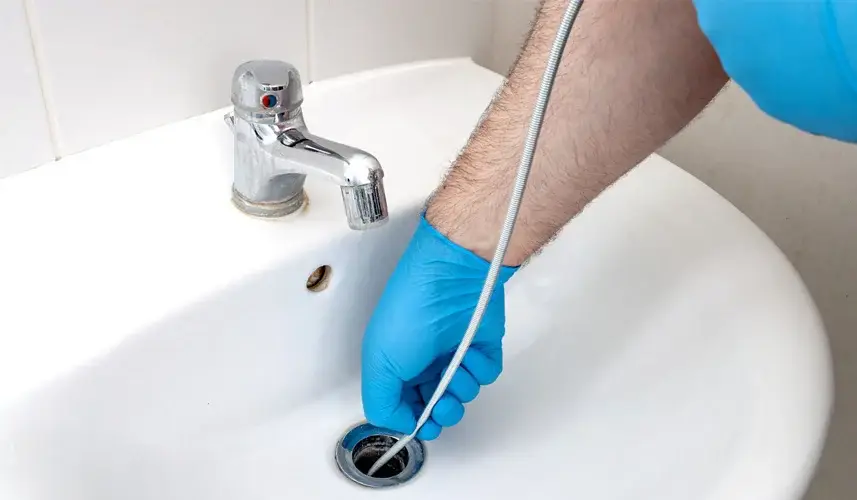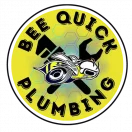
Sewer Line Rodding: A Homeowner’s Guide To Clear Pipes
What You Need To Know About Sewer Line Rodding To Keep Your Pipes Clear
If you’re reading this you’re probably a homeowner who values order. Bee Quick Plumbing & Sewers Inc. knows how important a working sewer system is for home comfort and safety. We specialize in sewer repairs & clean out stations, so we can explain sewer line rodding and how it can keep your pipes clear. Whether you’re dealing with pesky clogs or simply want to prevent future issues, our comprehensive guide will equip you with the knowledge you need to tackle sewer line maintenance like a pro. Ready to dive in? Contact us today at (630) 923-1942 and Let’s get started!
Understanding Sewer Line Rodding
To keep wastewater flowing away from homes, sewage line rodding uses specialized equipment to clear blockages. Maintaining plumbing functionality and preventing costly sewer line damage requires this process.
• Introduction To Sewer Line Rodding
Sewer line rodding is a fundamental aspect of plumbing services aimed at keeping your sewer system in optimal condition. Essentially, it involves using specialized equipment to clear obstructions and blockages from your sewer lines, ensuring the smooth flow of wastewater away from your home. The process typically entails inserting a flexible rod or cable into the sewer line, equipped with a cutting head or auger to break apart and remove debris. This method is highly effective for addressing common issues such as tree root infiltration, grease buildup, and sediment accumulation.
• Importance Of Maintaining Clear Sewer Lines
The importance of sewer line rodding cannot be overstated, as a clogged sewer line can lead to a myriad of problems for homeowners. Beyond the inconvenience of foul odors and slow drains, untreated blockages can result in sewage backups, property damage, and potential health hazards. By proactively maintaining clear sewer lines through rodding, homeowners can avoid costly repairs, preserve the integrity of their plumbing system, and ensure the overall well-being of their property.
DIY Techniques For Sewer Line Maintenance
Regular inspections and safe rodding allow homeowners to prevent sewer line clogs and blockages with DIY methods. These practices can help homeowners prevent sewer line issues and maintain their plumbing system without professional help.
• Regular Inspections And Maintenance Tips
One of the most effective ways to prevent sewer line issues is through regular inspections and maintenance. Homeowners can start by visually inspecting their sewer lines for signs of damage, such as cracks, leaks, or tree root intrusion. Additionally, scheduling routine maintenance tasks such as cleaning out gutters and rain spouts can help prevent debris from entering the sewer system and causing blockages. By staying vigilant and addressing minor issues promptly, homeowners can avoid the need for more extensive repairs down the line.
• Safe Handling Of Sewer Line Rodding Equipment
For those comfortable with DIY maintenance tasks, sewer line rodding can be performed using a variety of specialized equipment available for purchase or rental. However, it’s essential to prioritize safety when handling rodding equipment, as misuse can lead to injury or further damage to your sewer lines. Before attempting rodding, homeowners should familiarize themselves with the operation of the equipment and follow all manufacturer instructions carefully. Additionally, wearing appropriate protective gear, such as gloves and eye protection, can help prevent accidents and ensure a safe working environment.

Exploring Kitchen Sink Jetting Or Rodding
Kitchen sink jetting or rodding involves two methods of clearing clogs: high-pressure water streams (jetting) or flexible rods (rodding). These methods give homeowners options for efficiently addressing clogs based on their severity.
• Importance Of Kitchen Sink Maintenance
The kitchen sink is a primary area where clogs often occur due to food scraps, grease, and other debris being washed down the drain. As such, regular maintenance is crucial to keep the kitchen sink functioning properly and prevent sewer line issues. Simple practices such as avoiding pouring cooking oil down the drain, using drain guards to catch food particles, and periodically flushing the drain with hot water can help minimize the risk of clogs and blockages.
• Key Differences Between Jetting And Rodding Techniques
When it comes to clearing kitchen sink clogs, homeowners have two primary options: jetting and rodding. Jetting involves using high-pressure water streams to dislodge debris and flush it away while rodding utilizes flexible rods to physically break apart blockages. While both methods are effective, they each have their advantages and limitations. Jetting is ideal for removing soft blockages such as grease and food particles, while rodding may be necessary for more stubborn or compacted obstructions. Consulting with a professional plumber can help homeowners determine the best approach for their specific situation.
Understanding Underground Plumbing Systems
Homeowners must understand underground plumbing systems to understand critical components under their homes. Sewer pipes, cleanout fittings, and drainage systems move wastewater from homes to municipal sewer systems or septic tanks.
• Overview Of Underground Plumbing Components
Your home’s plumbing system extends beyond what meets the eye, with many critical components hidden underground. Understanding the layout and function of these underground plumbing systems is essential for identifying and addressing sewer line issues effectively. Common components include sewer pipes, cleanout fittings, and drainage systems, all of which work together to transport wastewater away from your home and into the municipal sewer system or septic tank.
• Signs Of Sewer Line Issues
Detecting sewer line issues early on can help prevent costly repairs and minimize damage to your property. Common signs of sewer line problems include foul odors emanating from drains or outdoor sewer cleanouts, gurgling noises coming from toilets or drains, and slow drainage throughout the house. Additionally, sewage backups or standing water in the yard can indicate a more severe issue that requires immediate attention. If you notice any of these warning signs, it’s essential to contact a professional plumber to assess the situation and recommend the appropriate course of action.
Sewer Repairs & Clean Out Station: Professional Solutions
Sewer repairs & clean out stations provide expert sewer line repair. Professional plumbers diagnose and fix issues using cutting-edge technology to minimize home disruption. Maintenance is simplified without excavation at clean-out stations.
• When To Seek Professional Sewer Repair Services
While some sewer line maintenance tasks can be performed DIY, certain issues require the expertise of a professional plumber. Signs that indicate the need for professional sewer repair services include persistent sewer odors, sewage backups, and visible damage to sewer lines such as cracks or leaks. Additionally, if DIY efforts fail to resolve the issue or if you’re unsure about the extent of the problem, it’s best to consult with a licensed plumber who can assess the situation and provide an accurate diagnosis.
• Importance Of Clean Out Stations In Sewer Line Maintenance
Clean out stations play a crucial role in sewer line maintenance, providing access points for inspection, cleaning, and repairs without the need for extensive excavation. These access points are typically located at strategic intervals along the sewer line and feature removable caps or covers that allow plumbers to insert rodding equipment or inspection cameras as needed. By installing clean-out stations in key locations, homeowners can streamline maintenance efforts and minimize the disruption associated with sewer line repairs.
Sewer line rodding helps keep sewer lines clear, which is vital to your home’s health. You can keep your sewer system running smoothly for years by learning sewer line maintenance basics, trying DIY methods, and knowing when to call an expert. At Bee Quick Plumbing & Sewers Inc. we offer expert plumbing services tailored to your needs.
Contact us today at (630) 923-1942 or visit our website to learn more about our services, and service areas, and get a free quote. Don’t let sewer line issues disrupt your peace of mind – trust our expert team to keep your pipes clear and your home running smoothly.


 Powered by
Powered by